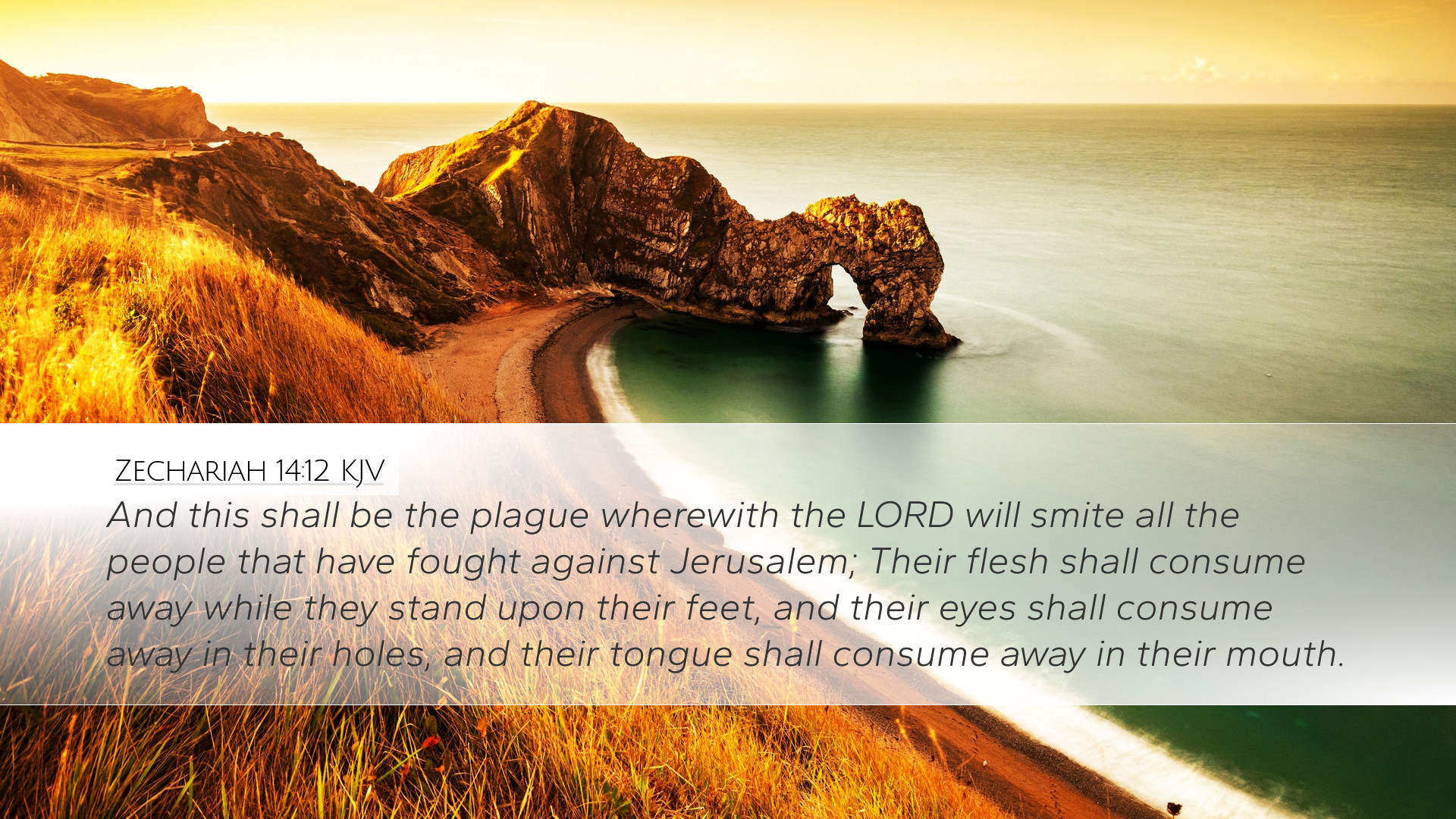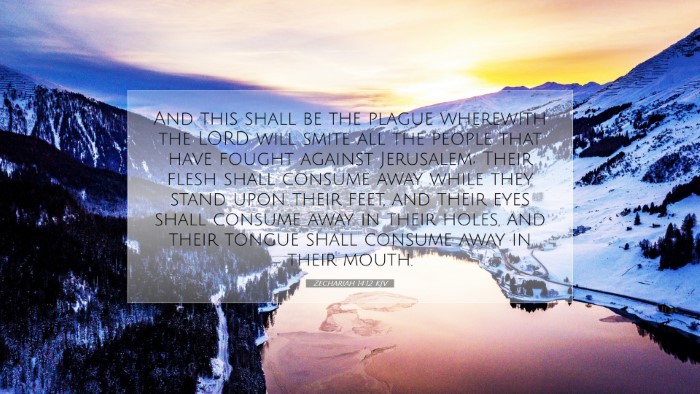Old Testament
Genesis Exodus Leviticus Numbers Deuteronomy Joshua Judges Ruth 1 Samuel 2 Samuel 1 Kings 2 Kings 1 Chronicles 2 Chronicles Ezra Nehemiah Esther Job Psalms Proverbs Ecclesiastes Song of Solomon Isaiah Jeremiah Lamentations Ezekiel Daniel Hosea Joel Amos Obadiah Jonah Micah Nahum Habakkuk Zephaniah Haggai Zechariah MalachiVerse
Zechariah 14:1 Zechariah 14:2 Zechariah 14:3 Zechariah 14:4 Zechariah 14:5 Zechariah 14:6 Zechariah 14:7 Zechariah 14:8 Zechariah 14:9 Zechariah 14:10 Zechariah 14:11 Zechariah 14:12 Zechariah 14:13 Zechariah 14:14 Zechariah 14:15 Zechariah 14:16 Zechariah 14:17 Zechariah 14:18 Zechariah 14:19 Zechariah 14:20 Zechariah 14:21

